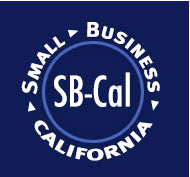A major decision was handed down by the state Supreme Court yesterday in an ADA action. See below. Small Business California along with a few other business organizations file an amicus brief in this action
I've attached the Supreme Court decision. The Supreme Court affirmed the Court of Appeal and held that the prevailing defendant (here a small business in the Mission) in a disability access lawsuit under Cal. Civil Code 55 is entitled to recover his attorney fees and costs defending the action. Specifically, the Court held that Civil Code 55 mandates a fee award to the prevailing party (whether plaintiff or defendant) and that the ADA's more plaintiff-friendly fee shifting provisions (which allow a prevailing defendant to recover fees only if the court determines that the lawsuit was frivolous) do not preempt Civil Code 55's mandatory bilateral fee shifting in a lawsuit where the plaintiff alleges both causes of action.
Jim Emery
Deputy City Attorney
City Hall, Room 375
San Francisco, CA 94102
dd: 415-554-4628
fax: 415-554-4757
jim.emery@sfgov.org
Yesterday I asked if people knew what a filibuster and cloture were in the Senate. It was clear by many of your responses that many of you were not aware of these procedures. Rather than responding to all of you individually let me briefly explain.
A filibuster is a procedure for a minority to prevent a bill from moving forward in the Senate. It allowed Senators to speak as long as they want to prevent a bill from moving forward. It required a two thirds vote to end a filibuster. On 1975 the rules were changed to allow cloture on a bill if there were 60 votes to do so. In many cases filibuster and cloture are used interchangeably. It will be interesting to see if the rules get changed to a simple majority.
As I said yesterday it has been argued that this creates gridlock in the Senate on controversial bills. Both the Republicans and Democrats have used these procedures depending on who is the minority party. One other problem as I see it is that some Senators have used their vote as a bargaining chip to obtain money for their pet projects. This was believed true in the passage of the Affordable Care Act where Senator Ben Nelson was purported to take $45 million for Medicare and Senator Landrieu’s vote was called the Louisiana purchase.
Scott Hauge
President
Small Business California
2311 Taraval Street
San Francisco, CA 94116
shauge@cal-insure.com
415-680-2188
Subscribe to:
Post Comments (Atom)



No comments:
Post a Comment